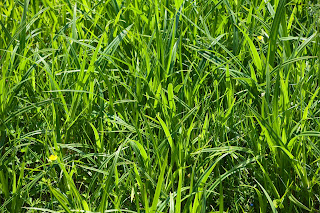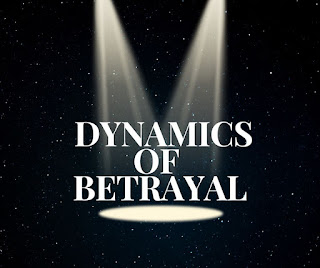Five things we need to know about the Most Holy Trinity
Let’s face it, we have trouble understanding and explaining the Most Holy Trinity. The following short video, irreverently pokes fun at this problem.
Perhaps the Holy Trinity is a mystery that is too hard to explain? While simple analogies do fail, it is possible to understand some basic truths about the Trinity. In fact, there are five surprising truths we need to learn.
Firstly, far from being some obscure and impractically
belief, the Catechism reminds us that, “The mystery of the Most Holy Trinity is
the central mystery of the Christian
faith and of Christian life”
(CCC 261). It is the most fundamental
and essential teaching of our faith (CCC 234).
Everything God does is the common work of the three divine persons.
Every aspect of our faith is touched by this mystery.
Secondly, when God created man and women in the “image and
likeness of God” (Genesis 1:27) this truth highlights a dual unity of the human
couple who image the relations
between the Father, Son and Holy Spirit.
The central idea of these relations is the eternal self-giving love exchanged between the Father, Son and
Holy Spirit within the one Holy Trinity.
In this sense the human family is an image of the Trinity. Pope Francis
reminds us, “The word of God tells us that the family is entrusted to a man and
a woman and their children, so that they may become a communion of persons in
the image of the union of the Father, the Son and the Holy Spirit” (Amoris Laetitia, 29).
Thirdly, when we talk about the mystery of the Most Holy Trinity we do not mean that it is a truth
that is too hard to understand. Yet this is actually how most people understand
the word ‘mystery.’ If I can’t understand I say, “It is a mystery.”
Mystery does not mean impossible to understand. When the
Church uses the word, mystery it
means a truth which can only be understand because God has chosen to reveal it
to us. There is no natural way to discover the Trinity. We only know this truth
because God has revealed it.
As the Catechism put this, “The Trinity is a mystery of
faith in the strict sense, one of the ‘mysteries that are hidden in God, which
can never be known unless they are revealed by God’” (CCC 237). God has chosen
to reveal this truth and it is central to our faith.
Because God has revealed the Holy Trinity to us we can
understand it, even if the depths of who God truly is are beyond our human grasp.
We can know even if we can’ t know all things.
Fourth, God is one.
“We do not confess three Gods, but one God in three persons, the
‘consubstantial Trinity’" (CCC 253). We cannot avoid the special
terminology without risking error. God the Father, Son and Holy Spirit have one
divine substance, essence or nature. They are consubstantial.
Fifth, there are three
distinct divine persons in the Godhead. They are not simply different forms
or modalities of one God but are really “distinct from one another in their
relations of origin: ‘It is the Father who generates, the Son who is begotten,
and the Holy Spirit who proceeds’” (CCC 254). Yet these origins do not begin in
time. The Son is eternally begotten and the Spirit eternally proceeds.
The divine persons may be understood relative to one
another. The divine unity cannot be divided, the distinction of their persons
resides solely in the relationships which relate them to one another. Although
inseparable in what they are, and in what they do, each person “shows forth
what is proper to him in the Trinity, especially in the divine missions of the
Son's Incarnation and the gift of the Holy Spirit” (CCC 267).
The Most Holy Trinity reveals the eternal self-giving love of the Father, Son and Holy Spirit.
The other mysteries of our faith such as the Paschal mystery and the Sacraments
flow from this central mystery. They are all a witness to His divine love and
they exist to bring us into communion with Him.
This coming week, as we reflect on this great mystery, let
each of us think about this truth each time we make the sign of the cross (CCC 2166). Why not make an effort to discipline
ourselves to ‘cross ourselves’ slowly and thoughtfully this week, in honor of
the Most Holy Trinity?



Comments
Post a Comment
Thank you for your comment on the threefoldcord blog. All comments are moderated.